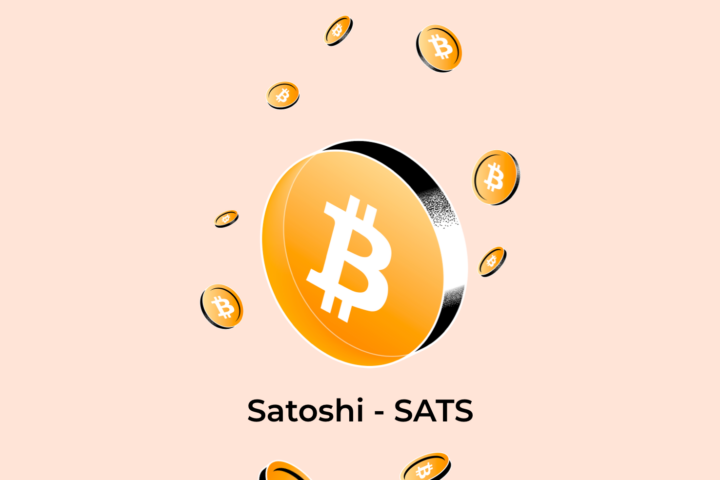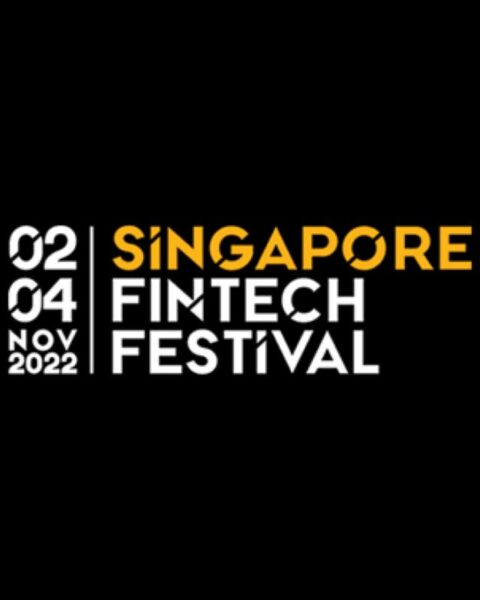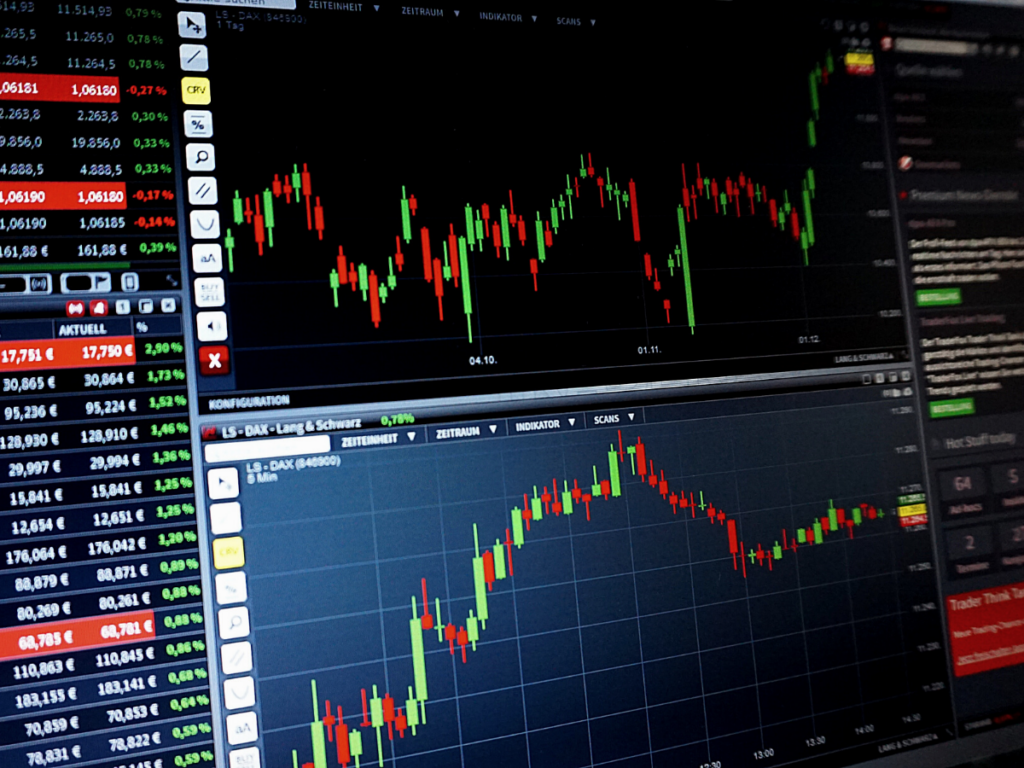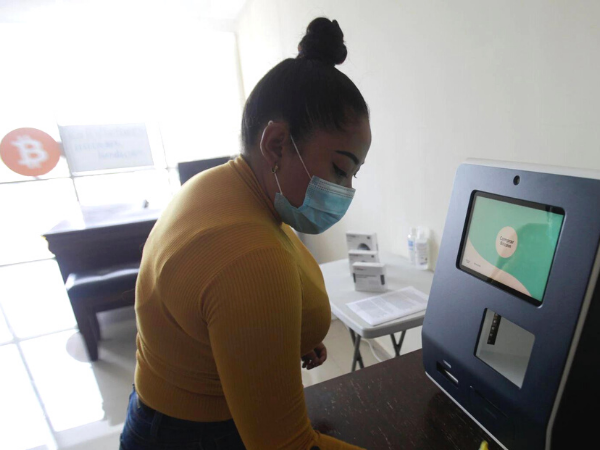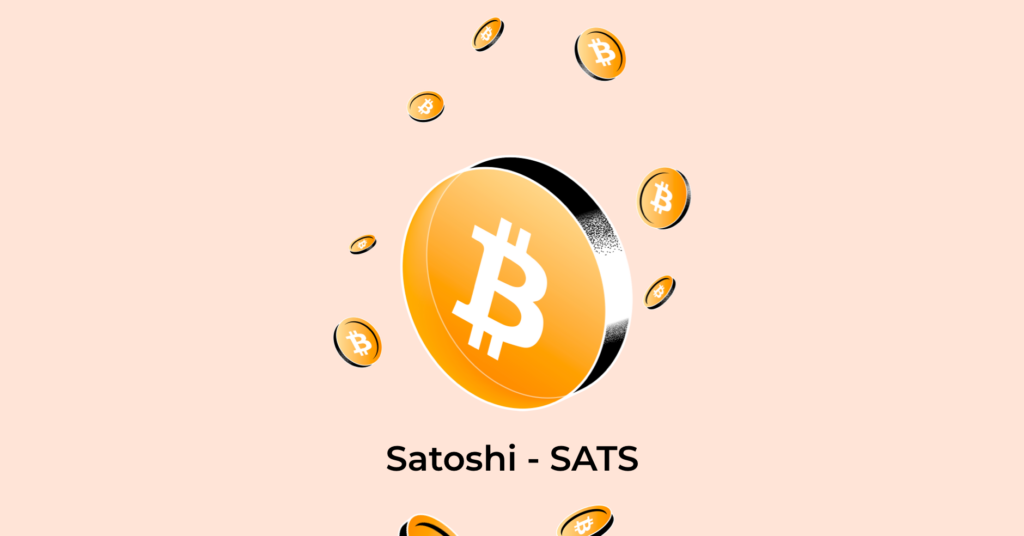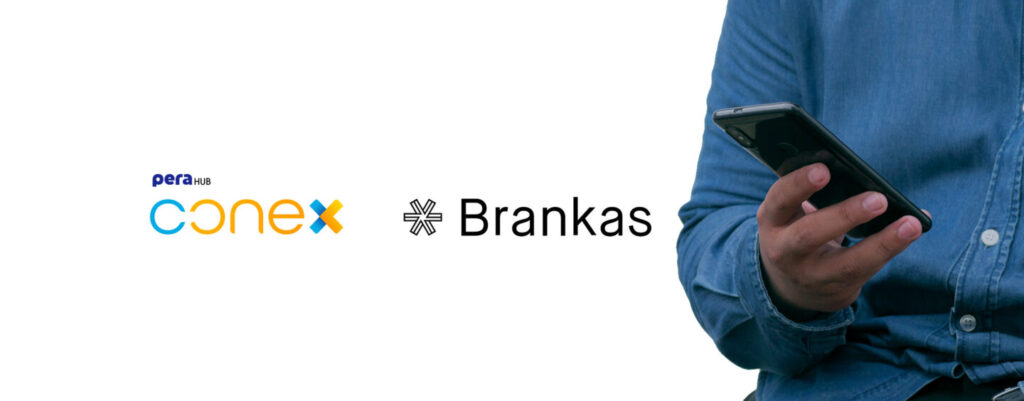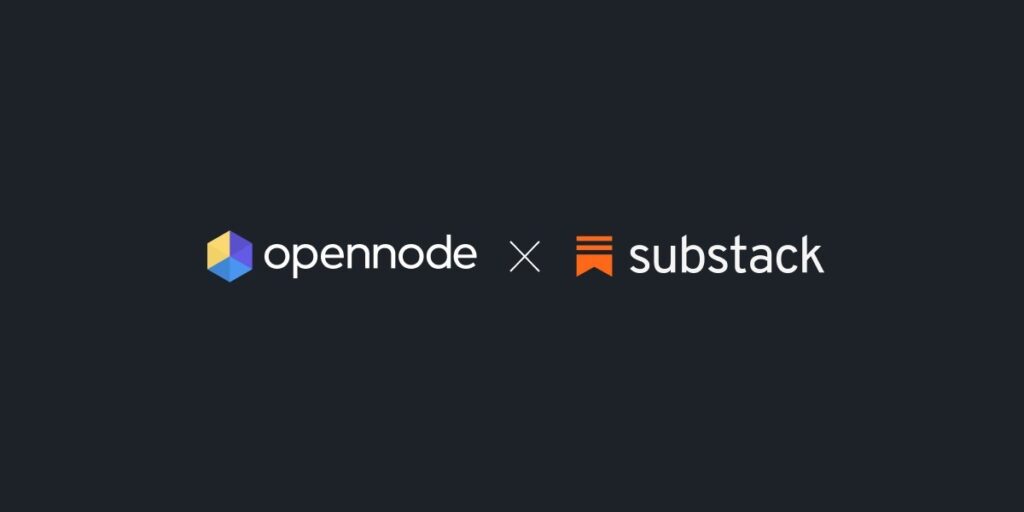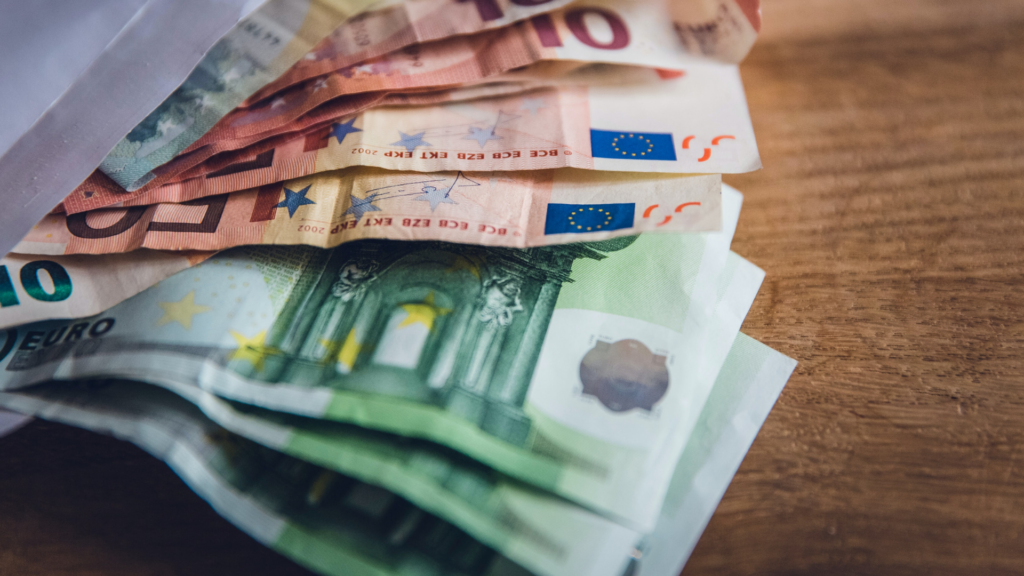Switching to the Satoshi standard and Lightning Network connectivity makes Bitcoin more tangible and easy to use. AAX has made the first move in the crypto space, already providing BTC to SAT
EQONEX announces the launch of Cross Collateral trading to improve capital efficiency
Nasdaq-listed cryptocurrency exchange EQONEX (Nasdaq: EQOS), today announced the launch of Cross Collateral functionality across its platform to enable traders to more effectively manage their collateral when trading derivative products.
With the new feature, traders will be able to use US dollars (USD), USD Coin (USDC), and Bitcoin (BTC) as margin for derivatives trading. EQONEX also intends to expand the assets eligible to be used as margin including EQO.
The launch of Cross Collateral is another milestone for EQONEX as it introduces more trading tools demanded by sophisticated traders, who are seeking to trade crypto portfolios in all market conditions. It follows the introduction of trading Sub Accounts in June, Ethereum Perpetual Futures in March, and BTC Perpetual Futures in January.
Cross Collateral gives all customers the opportunity to use multiple assets instead of only USD or USDC to fund their Total Account Margin. This removes the requirement to convert assets into USD or USDC before opening a margined position. In addition, Cross Collateral now allows traders to generate negative USD or USDC balances to handle trading fees, basis payments, and P&L without liquidating any open Cross Collateral positions.
Neil Sheppard, Chief Product Officer at EQONEX, said: “As we continue to improve and upgrade EQONEX our main objective is to facilitate the wider institutional and professional trader adoption of crypto assets.
“Our roadmap to become the premier trading venue of choice for traders sees the introduction of both additional assets that can be used as Cross Collateral as well as a wider range of derivative products and trading features that will benefit from such functionality.”
LatAm: Honduras opens its first cryptocurrency ATM
The first cryptocurrency ATM in Honduras opened this week as bitcoin backers sought to spur demand for virtual assets after neighbouring El Salvador became the first country to establish bitcoin as legal tender.
The machine, locally dubbed “la bitcoinera,” allows users to acquire bitcoin and ethereum using the local lempira currency and was installed in an office tower in the capital of Tegucigalpa by Honduran firm TGU Consulting Group.
Juan Mayen, 28, chief executive of TGU, led the effort to bring the ATM to Honduras in hopes of educating people about virtual assets through the first-hand experience.
Until now, there was no automated way to buy crypto-currencies, he said.
“You had to do it peer-to-peer, look for someone who … was willing to do it, meet in person and carry X amount of cash, which is very inconvenient and dangerous given the environment in Honduras,” he said.
On Friday, one ethereum was trading at $3,237, and bitcoin; $48,140. If the service is popular, Mayen said he hoped to install more units.
To make a purchase, users have to scan official identification and input personal data such as a phone number.
Many software developers in Honduras are already paid in cryptocurrencies, Mayen said, adding that it will also be a cheaper option to send remittances.
Cuba authorizes and seeks to regulate cryptocurrency use
LiveCuba said this week it would authorize and regulate the use of cryptocurrency, a move that could help the Communist-run country skirt U.S. sanctions that have complicated transactions through the international banking system.
Cryptocurrencies, which allow financial operations to be carried out anonymously in a decentralized manner, have been used in the past to get around capital controls, as well as to make payments and transfers more efficient.
Cuba’s central bank can, for “reasons of socioeconomic interest,” authorize the use of certain virtual assets for payments and issue licenses to providers of services related to them, according to a resolution published in the official gazette on Thursday.
The bank warned that individuals undertook unauthorized operations with such assets at their own risk. In May it had alerted Cubans against a growth of Ponzi-like ‘investment’ schemes, including some using cryptocurrencies.
Interest in the use of cryptocurrencies in Latin America has been growing. El Salvador in June became the first country in the world to adopt bitcoin as legal tender. The first cryptocurrency ATM in neighbouring Honduras opened this week.
Inflation in Argentina and Venezuela has also spurred interest in digital currencies.
Cryptocurrency already had a fanbase in Cuba as a way to get around the decades-old U.S. trade embargo that cuts Cubans off from conventional international payment systems and financial markets.
Some younger, tech-savvy Cubans have been buying digital currencies to make purchases online and to invest, while companies have offered to send remittances to Cubans through an exchange scheme involving cryptocurrencies.
AAX becomes the first crypto trading platform to make the switch to SATS To Counter Bitcoin Price Bias And Drive Adoption
LiveSwitching to the Satoshi standard and Lightning Network connectivity makes Bitcoin more tangible and easy to use. AAX has made the first move in the crypto space, already providing BTC to SAT balance conversion with a separate SAT-USDT market with a minimum trade volume of 0.1 USD, launching on August 25.
AAX believes that the adoption of SAT as a unit of measurement is an important and long-overdue process for the cryptocurrency community since the new standard contributes to the spread of Bitcoin and helps new people, especially those from unbanked countries and regions with a lower level of cryptocurrency awareness, make their first purchase into this new form of sound money. Mass adoption should not make the blockchain space look like the classical financial market, as it was never meant to be so.
The Bitcoin community has been requesting such an upgrade for a long time, with big players supporting the new standard. In May, Mike Novogratz, tagging Coinbase, Kraken and FTX, called on crypto exchanges to switch to Satoshis, referring to the growing number of people saying the high price of Bitcoin stops them from buying it:
“It is time to switch to Satoshis. Too many people telling me that $58,000 $BTC is too expensive. Which exchange will be first to quote in SATS?”
Following AAX’s announcement to heed Novogratz’ call, one prominent Bitcoiner and author of “21 lessons: what I’ve learned from falling down the Bitcoin rabbit hole” pointed out that the discussion had been going on for a few years already.
Apart from hints by some exchanges such as OKCoin, it was Bitfinex who was next to make a significant move, announcing:
Switching from BTC-USD to SAT-USD will allow people to be far less hesitant when considering the transition to using Bitcoin. Unit price bias is the biggest problem that has been underestimated for years as an incredibly powerful barrier, and it significantly affects both the average retail investor and new user.
“We are confident that this is the beginning of an important trend, and we are delighted to be at the origins of a new on-exchange metric system. I urge crypto exchanges and payment systems to pay attention to popularize the new standard as soon as possible, as this is the only real way we counter the idea that the Bitcoin ship has sailed. It’s only for the rich”, Toya Zhang, the Deputy COO of AAX, added on the matter.
In addition, an increase in the availability and ease of use of BTC is needed for its further popularization and adoption as a means of payment. However, with its price growth, the situation is developing in the opposite direction since an expensive Bitcoin is less practical for regular payments for everyday goods and services.
As the industry matures, it is harder to gain access to BTC for the unbanked and generate organic demand. Commissions may cost more than the amount the less well-off can trade.
Furthermore, as seen in recent months, meme coins such as DOGE and SHIB are perceived as cheaper than Bitcoin and, consequently, those who might need it most turn to hype money, unsound money, or riskier investments.
The widespread introduction of SATS as a unit can correct the situation, as it is more convenient to carry out calculations. For example, a cup of coffee costs 10,000 SAT or 0.0001BTC. This is also a good marketing ploy for BTC, as users will now be buying 212,000 SAT, not 0.00212 BTC for $100. Apart from such practical and psychological arguments, given that there can only ever be 21 million Bitcoin, most of its users will never be able to hold a full coin. This means that for the majority of Bitcoin holders, SATS will be the reality.
“Of course, in addition to this market and balance switch, we also understand the need to expand the Lighting Network to simplify deposits and withdrawals and bring down associated fees, but AAX is taking the first step in this direction today — offering to buy SATS of 10 cents or more without commission,” as Toya Zhang concluded.
Due to the smaller trade size, market makers on AAX will need to deploy alternative hedging techniques. Although small, within larger BTC movements, this local market for SATS can be expected to chart its own unique price fluctuations. Therefore, to optimally protect smallholders, any order above 50,000 SATS users shall be directed to the main Bitcoin market.
The transition to a simplified standard is part of the AAX initiative to make onboarding easier for new crypto users. On August 5, the exchange cancelled commissions for all spot pairs. As a result, users will be able to trade in the SAT-USD pair for free as well. The first trades in the SAT-USDT pair on AAX will be possible with a minimum order of $0.10 (214 SAT) and a maximum order of 50,000 SAT ($23) from the 25th of August.
PERA HUB Join Forces With Brankas to Launch Digital Remittance Platform
Philippines’ financial services center PERA HUB has joined forces with Brankas, an Indonesian open API technology provider, to launch a digital remittance platform, PERA HUB Conex.
The platform serves foreign and local remittance companies, fintech partners, banks, e-wallets, brick-and-mortar retailers, and any other business looking to offer their customers digital remittance services.
As PERA HUB’s technology partner, Brankas is implementing its Open Finance system to unlock new digital remittance channels for Filipinos at home and abroad.
Brankas provides a secure API developer portal that enables partners to access the PERA HUB network.
The platform will offer services that include international and domestic remittances, sending remittances for direct credit to bank account or e-wallet, account validation and KYC, digital micro-insurance as well as instant bill payments.
PERA HUB said that these services are available at more than 3000 locations in the Philippines.
PayPal Launches Its Cryptocurrency Service in the UK
LivePayPal announced the launch of a new service enabling its customers in the UK to buy, hold and sell cryptocurrency with PayPal. This new service starts rolling out this week.
Customers can choose from four types of cryptocurrencies—Bitcoin, Ethereum, Litecoin and Bitcoin Cash. By accessing their PayPal account via the website or the mobile app, they can view real-time crypto prices, access educational content to help answer commonly asked questions, and learn more about cryptocurrencies, including the opportunities and risks.
This announcement marks the first international expansion of the company’s cryptocurrency offering outside of the United States. With a trusted brand like PayPal now making an entry, access, knowledge, and the exploration of cryptocurrency has the potential to become mainstream in the UK.
“The pandemic has accelerated digital change and innovation across all aspects of our lives— including the digitisation of money and greater consumer adoption of digital financial services,” said Jose Fernandez da Ponte, Vice President and General Manager, Blockchain, Crypto and Digital Currencies at PayPal. “Our global reach, digital payments expertise, and knowledge of consumer and businesses, combined with rigorous security and compliance controls provides us the unique opportunity, and the responsibility, to help people in the UK to explore cryptocurrency. We are committed to continue working closely with regulators in the UK, and around the world, to offer our support—and meaningfully contribute to shaping the role digital currencies will play in the future of global finance and commerce.”
Buy, hold and sell cryptocurrency with PayPal
The introduction of this service offers customers a new way to explore cryptocurrency in the PayPal environment they know and trust. Customers can start by buying as little as £1 of cryptocurrency through PayPal. To purchase cryptocurrency, eligible customers can log into their PayPal account via the website or their mobile app, navigate to the new crypto tab to view the four cryptocurrencies available and view current pricing and trends.
Customers can choose from pre-determined purchase amounts or enter in their own purchase amount, before following the prompts to buy the cryptocurrency of their choice. Customers will be able to fund their PayPal account for the purchase using their bank account or debit card. If customers choose to sell cryptocurrency with this new service, funds are normally available quickly to spend in their PayPal account. There are no fees to hold cryptocurrency in a PayPal account. There are transaction fees and currency conversion fees for buying and selling applicable cryptocurrencies.
Create greater understanding and enable access
As part of this offering, PayPal provides account holders with educational content to help them understand the cryptocurrency ecosystem, the volatility, risks, and opportunities related to purchasing cryptocurrency. The company encourages its customers to do their research on the risks and opportunities for various cryptocurrencies before taking the step to buy, hold and sell cryptocurrency with PayPal.
Advancing the next generation of financial services infrastructure
PayPal is one of the largest companies globally to enter the market for digital currencies with its announcement last October that it would allow its millions of U.S. customers to buy, hold and sell cryptocurrencies. This March, the company announced ‘Checkout with Crypto’— enabling customers in the U.S. to use their cryptocurrency alongside other payment methods in their PayPal wallet to make purchases at businesses around the world. In April, the company introduced crypto services on its mobile payment service Venmo in the U.S.
In addition to providing these cryptocurrency services, PayPal has been exploring the potential of digital currencies through partnerships with licensed and regulated cryptocurrency platforms and with central banks around the world. For the past five years, PayPal has increased its focus on, and invested resources in its internal blockchain research team to explore the next generation of digital financial services infrastructure and enhancements to digital commerce.
The company has enabled its cryptocurrency offering through a partnership with Paxos Trust Company. PayPal’s venture capital arm has also made investments in blockchain and cryptocurrency-related start-ups including: TRM Labs, leading cryptocurrency risk management software; TaxBit, a provider of crypto tax software to customers and exchanges; and Talos, institutional-grade infrastructure technology for digital asset trading.
In the UK, PayPal’s new crypto offering which covers buying, holding and selling cryptocurrency will start to roll out this week and will be available within the next few weeks for all eligible customers directly in their PayPal account via the website and their mobile app.
Substack to accept Bitcoin payments on the Lightning Network powered by Bitcoin payment processor OpenNode
OpenNode, an industry-leading Bitcoin payment processor, announced today that Substack, an online publishing platform with over 500,000 paying subscribers, has integrated their Bitcoin API to offer Bitcoin payments on the online publishing platform. OpenNode will power both on-chain and Lightning Network Bitcoin payments.
Working together, OpenNode and Substack are starting by making instant, low cost payments available to a select group of crypto-focused publications. Readers will be able to use Bitcoin to pay for subscriptions to these select publications, and the publications will retain earnings in Bitcoin.
“We’re excited to be working with OpenNode to enable independent publishers on Substack to accept crypto payments,” said Nick Inzucchi, product designer at Substack. “Having this option will give writers more flexibility and freedom, and we look forward to doing more in crypto to meet writers’ needs.”
“Our partnership will allow content creators across the Substack ecosystem to accept Bitcoin payments, and retain earnings in Bitcoin or convert to preferred currency. Writers and podcasters have flocked to Substack to regain creative and financial freedom, and Bitcoin is a natural fit,” said João Almeida, Co-founder & CTO at OpenNode.
Smartsearch launches document verification system to combat money laundering
Leading UK anti-money laundering specialist SmartSearch has launched a new weapon in the ongoing fight against dirty cash being cleaned around the world through activity such as buying property.Organised crime gangs and fraudsters are now thought to be responsible for up to $2 trillion a year in money laundering, which is being enabled due to a lack of basic ID checks and document verification, according to SmartSearch.
In response the multi-award winning RegTech 100 firm has now launched SmartDoc, the most advanced document verification system on the market, using a combination of cutting-edge facial ID technology and a level of expert analysis at the same level as border security officials.
John Dobson, SmartSearch CEO, said SmartDoc would not only help businesses in the property, legal and financial service sectors prevent fraud, but also help them remain compliant with global regulations which would result in hefty fines and even prosecution if breached.
He said: “We have built a reputation over the past ten years for our market-leading digital verification solution, which is by far the most effective way to carry out anti-money laundering (AML) and Know Your Customer (KYC) checks.
“But we have launched SmartDoc to run alongside that as another weapon in the armoury for those businesses which feel the need to carry out document verification as part of their customer due diligence.
“The new SmartDoc solution incorporates facial recognition to identify forged ID documents which include photographs, such as passports, driving licences, work permits amongst others.
“SmartDoc will ensure regulated businesses can securely authenticate customer identities, preventing fraud and allowing them to remain compliant with AML legislation.
“While we would always advise customers that electronic verification is the quickest and most reliable way to perform KYC and AML checks, a document checking solution is a key tool due to the vast increase in attempted fraud as a result of the global pandemic.
“The lack of face-to-face interactions caused by lockdown opened a window for criminals to attempt to deceive, and despite restrictions being relaxed, this wave of fraud has not stopped.
“But businesses need to be aware that they are responsible for ensuring they comply with AML regulations and could face severe fines for allowing this activity to go on unchecked.”
The new feature has been developed in part in response to feedback from SmartSearch clients and, by combining leading document authentication technology and the latest biometric verification and liveness detection techniques, SmartDoc provides an accurate picture of the customer, which removes the need for face-to-face interaction.
Not only does the technology confirm whether a document is genuine and unaltered, but that it also belongs to the person presenting it, providing an additional layer of security to identity checks.
It then provides a pass-fail result and also screens the customer against politically exposed persons (PEP) and sanctions lists.
The SmartDoc service combines machine-learning interrogation and an optical character recognition algorithmic check on the ID document machine readable zone, verifying whether the document is genuine and unaltered, with a full data integration to identify document tampering.
Where necessary, it also uses visual scrutiny by a border security trained ID document expert, who will examine every aspect to check security features found in genuine documents, as well as key indicators of potential forgery.
Sydney Stock Exchange joins Fintech Australia
Sydney Stock Exchange (SSX) has joined FinTech Australia’s corporate partnership program, becoming the 13th new major member it has signed on in a year. SSX joins existing partners Xero, Amazon Web Services (AWS), Mastercard, EY, Facebook, Google, eftpos, IDEMIA, Regional Australia Bank, RSM Australia and the Newcastle Permanent Building Society.The partnership program embeds companies within the fintech ecosystem and networks them with its key players.
“We look forward to working with the SSX as it looks to grow its presence in the fintech industry,” FinTech Australia CEO Rebecca Schot-Guppy said. “With many of our members considering their options for capital and the fintech industry rapidly growing, we believe it’s an ideal time for SSX to help educate members on their options for fundraising.”
“As a growth company with international reach, the Sydney Stock Exchange is a natural partner for Australian fintechs. Our entry requirements are more supportive, and our ongoing administration is far more efficient. With the benefits of being listed, we help fintechs access the capital required to reach their potential.” Michael Go, CEO of Sydney Stock Exchange.
XREX Raises $17M to Expand Fiat Currency Portfolio and Partnerships
XREX, a crypto-fiat fintech company driving financial inclusion via blockchain, closed its $17 million Pre-A round, which was oversubscribed by 200%. XREX will use the funding to expand its fiat currency portfolio, acquire additional licenses, and forge partnerships with more financial institutions and digital wallets.
Led by CDIB Capital Group (TWSE: 2883), the consortium of global investors includes publicly-listed companies, major banks, venture capital firms, and top fintech investors from the US, Canada, Germany, Estonia, Singapore, Japan, Hong Kong, and Taiwan. The strong participation by publicly-listed companies underscores XREX’s commitment to compliance with regulatory bodies.
Other investors in this Pre-A round also include SBI Investment (subsidiary of SBI Holdings, TYO: 8473), Global Founders Capital, ThreeD Capital (CSE: IDK), E.Sun Venture Capital (TWSE: 2884), Systex Corporation (TWSE: 6214), Metaplanet Holdings, AppWorks, Black Marble, New Economy Ventures, and Seraph Group. XREX closed its $7 million seed round in 2019. The investors in that round included AppWorks (lead), Skype’s late-cofounder Toivo Annus, Metaplanet Holdings, Black Marble, CDIB, WI Harper, BitoEx, and the Taiwan government’s National Development Fund.
“CDIB was an early investor in XREX,” said Ryan Kuo, Head of CDIB Capital Innovation Fund. “After witnessing the company’s fast revenue growth and their commitment to compliance, we were determined to double our investment and lead this strategic round.”
“Our mission is to foster global financial inclusion by leveraging blockchain,” said XREX CEO and cofounder Wayne Huang, an internationally-recognized cybersecurity expert. “Many of our team members are from or have lived in the markets where we serve. We keenly understand the struggles faced by many cross-border merchants who lack safe access to US dollar liquidity.”
By working with local regulators and financial institutions, XREX has pioneered tools such as BitCheck and MyXchange to help merchants and SMEs in emerging markets reduce forex loss, gain access to US dollars and seamlessly cross over from informal to formal economy.
Capitalizing on a successful series of new features including their mandatory User Public Profile as well as their Risk Level Detector features, XREX will roll out a user Reputation Index next year to bolster safety, transparency and accountability while encouraging social networking.
In the last eight months, XREX successfully detected and prevented fraud rings from Russia and Nigeria from using the platform, attesting to XREX as one of the safest crypto-fiat currency platforms in the world.
“Helping entrepreneurs to succeed is a priority for us,” said Yoshitaka Kitao, Representative Director & Chairman of SBI Investment. “We believe XREX solutions open the door for underserved merchants to participate in global commerce on an even playing field.”
Jerry Horng, President of Black Marble Capital Management who serves on XREX’s board, said, “We were an early investor of XREX and we’re excited to continue our support in this round. XREX is uniquely positioned to connect Taiwan’s mature banking industry with the booming cross-border commerce currently seen in emerging markets.”
Recognizing compliance is core to digital currency adoption, XREX partners with several leading compliance and anti-money laundering providers such as CipherTrace, Sum&Substance, and TRISA.
“XREX has shown above-expectation growth since their graduation from our AW#17 accelerator batch in 2018. We are thrilled to back them again,” said Joseph Chan, a Partner at AppWorks who serves on XREX’s board. “This round will accelerate XREX’s capability of combining their unmatched cybersecurity expertise with leading compliance technologies to create a safer and cleaner ecosystem for crypto-enabled merchants, digital asset owners, and entrepreneurs.”



